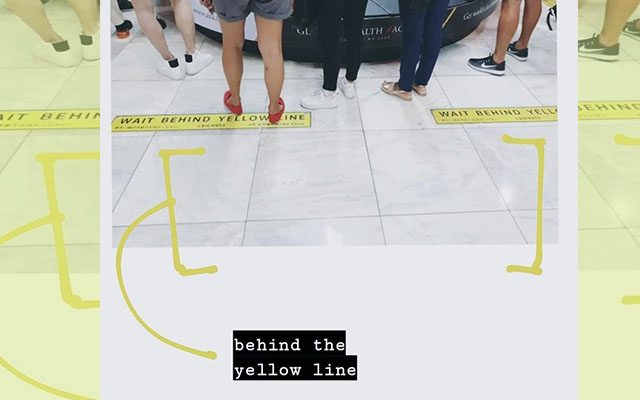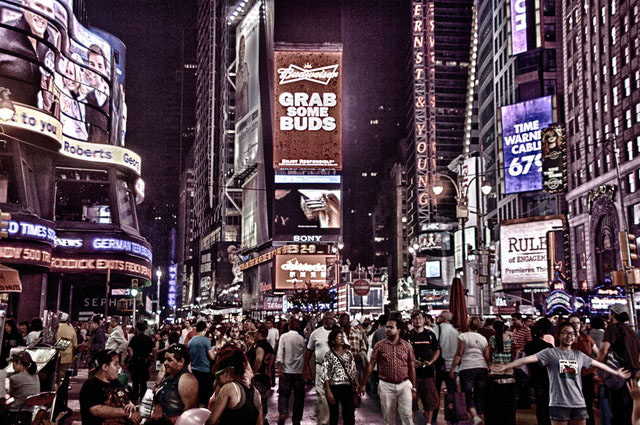
Bianca Gonzalez-Intal expressed her disappointment when she witnessed people disobeying the rules in an airport baggage claiming area where they have to wait behind a line to avoid obstructing the view of other people.
The television host-model shared a picture of people surrounding the area as they disregarded the yellow marker on the floor with the note “Wait behind the yellow line.”
I ?? really ?? don't ?? understand ?? what ?? is ?? so ?? hard ?? about ?? following ?? this ?? simple ?? rule ? pic.twitter.com/PVe21ow641
— Bianca Gonzalez (@iamsuperbianca) September 9, 2018
The incident occurred in the Ninoy Aquino International Airport.
Most Filipinos agreed with her sentiment and shared their own experiences through the comments thread.
Twitter user @johninamillion shared a video of people blatantly disregarding the yellow marker in the airport as they waited for their baggage. It’s not indicated if it’s the same baggage area as Bianca’s.
— John Mark Yap (@johninamillion) September 9, 2018
User @xococoxx shared a picture of people crowding around a baggage claiming area as well, joking that they must be “colorblind” as they didn’t notice the bright yellow marker.
Yung nakakainis sila pa yung galit. Colorblind ata. pic.twitter.com/3q4BLcuNw6
— Kavinsky (@xococoxx) September 9, 2018
Airports place markers around baggage claiming areas to prevent people from crowding around and to give them equal view so that they could immediately spot their own baggage without further hindrance.
It also prevents them from being possibly injured as they claim their baggage.
Why people hate to wait
The phenomenon to disregard the yellow marker comes from lack of discipline but it also signifies how much impatient people have become — to the point that they would ignore rules.
According to Smithsonian Magazine, our brains are wired to speed everything up — including waiting. They quoted Chelsea Wald of Nautilus, a science magazine, who wrote:
“The fast pace of society has thrown our internal timer out of balance. It creates expectations that can’t be rewarded fast enough—or rewarded at all. When things move more slowly than we expect, our internal timer even plays tricks on us, stretching out the wait, summoning anger out of proportion to the delay.”
Wald believes that a sort of “angry impatience” has pervaded today’s culture where people expect everything to occur faster.

“Slow things drive us crazy because the fast pace of society has warped our sense of timing,” she wrote.
This could be attributed to the continuous evolution of technology in the digital age where everything is offered in a quick manner — from news to online services like shopping.
People expect a quick turnaround of everything, causing them to act on matters immediately.
According to neuroscientist James Moore of Goldsmiths, University of London, “The link between time and emotion is a complex one. A lot is dependent on expectation—if we expect something to take time, then we can accept it. Frustration is often a consequence of expectations being violated.”
Psychologist Marc Whittman of Institute for Frontier Areas of Psychology and Mental Health explained, “Time stretches. People get mad. Everything is so efficient nowadays. We’re less and less able to wait patiently.”









